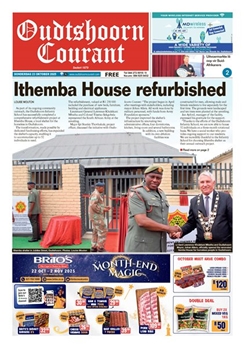NATIONAL NEWS - The Institute of Race Relations (IRR) this week launched its #YourBudget campaign with a panel discussion between top economists Dawie Roodt and Lumkile Mondi, and leading financial commentator Magnus Heystek on the impact of expropriation without compensation (EWC) on the finances and budgets of ordinary South Africans.
In light of Minister of Finance Tito Mboweni's Budget speech, South Africans are focused on matters of income and spending.
From the panel discussion, led by IRR campaigns manager Hermann Pretorius, it is clear that South Africans should be concerned about their financial wellbeing, not just in relation to the consequences of the Budget speech, but also the impact of the destruction of property rights under EWC.
The discussion revealed the wide-ranging consequences of EWC for the budgets of ordinary South Africans – the impact on savings, investments, and the cost of living, and the consequences of losing homes and farms and businesses while still, according to the banking sector, bearing the responsibility to pay bonds on expropriated property.
“Our discussion with these leading economists made it clear that South Africans cannot be complacent about the state of their own, as well as the nation’s, finances,” says Pretorius. “The reality is that the ANC’s model of so-called ‘sustainable wealth extraction’ is already leaving South Africans worse off, and that the blind ideological commitment to state power and state control in the form of EWC is putting our nation and our people’s finances at even greater risk.
“It is because of the devastating effects that EWC will have on the budgets of all South Africans that the IRR has been leading the fight to make the financial concerns of South Africans, of #YourBudget, a central part of the debate on EWC.
"We have already seen banks avoiding giving straight answers to clients on EWC and seeming to adopt a safety-in-numbers corporate strategy, with other members of corporate South Africa following suit.
“Despite initial positive interaction with banks such as Absa, engagements with these banks in the interests of ordinary South Africans have become increasingly difficult, with banks, insurers, and investment companies simply refusing to engage.
"Instead, these corporate entities have resorted to outsourcing their responsibilities towards clients to organisations such as the Banking Association of South Africa (BASA) and the Association for Savings and Investment South Africa (ASISA).”
Pretorius said: “Corporate South Africa should know that the IRR will not stop applying pressure on all role players to stand up unambiguously for the property rights of South Africans – the right of people to securely own what they’ve worked hard to earn.”
'We bring you the latest Garden Route, Hessequa, Karoo news'
















